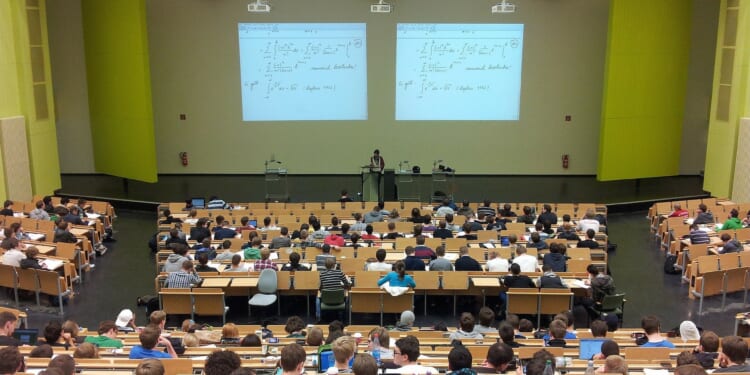Alana Goodman writes for the Washington Free Beacon about an interesting new development in the discussion of recent campus protests.
Several leaders of prominent universities on Monday said they believe the anti-Israel and anti-Semitic demonstrations that broke out on campuses across the United States during the Jewish state’s war against Hamas were not organic, instead telling a panel audience they believe “organized networks,” and even foreign governments, may have driven the unrest.
Leaders of notable U.S. universities had not offered many thoughts on the connections between campus protests and outside groups before Monday’s discussion on combating anti-Semitism. During the event, though, Syracuse University chancellor Kent Syverud brought up Iran in particular.
“I really believe [the demonstrations] were encouraged from Iran,” Syverud said. “It did not have the involvement of very many—if any—of our own students.”
Vanderbilt University chancellor Daniel Diermeier agreed, saying the anti-Israel movement on his campus seemed to have been coordinated by outside forces and followed a “playbook” that “was imported” from other universities.
“There was, not a large group, maybe 30-plus students or something, but they were using the playbook that they had seen at Columbia and other places,” he said. “It was the same messaging. So, it’s more than a social contagion. I think they’re organized networks as well.”
Congress has investigated the role of outside non-governmental organizations and foreign entities in campus protests, and former director of national intelligence Avril Haines announced in July 2024 the Iranian government encouraged the demonstrations and provided financial support to protesters.
Hamas members themselves have indicated the terror group has worked with U.S. activists.











